How to Install XAMPP in Kali Linux?If you are a Linux system user, you definitely know that installing software in Linux is nothing but a game of few commands. Therefore the best way to install the XAMPP server on your Linux system is through the command line. Just execute a few commands, and soon you will have Apache, MySQL, and PHP server on your system. However, before proceeding to the download & installation process, it will be great to discuss what the XAMPP server really is. XAMPPIt is one of the softwares developed by Apache Friends, and the best thing about XAMPP is that it is open-source software, which means it is free for all. You can download it and use it without spending a penny. Usually, it is used by the developers to test or check the websites before uploading and running on an actual web server. Hence it allows us to find and fix bugs in the website before it is launched on the server. This way, it helps save precious time and huge costs because if you launch your website without proper testing, it may crash or hack, which can cost you a lot. Therefore we can say that it provides a certain type of environment with proper resources where we can test MYSQL, PHP, Apache, and Perl projects on our local computer. However, if something gets really wrong, which usually does not happen, we do not have to worry as it allows us to correct our mistakes. Let us see some important questions about the XAMPP. What is the meaning of xampp? The Full Form Of XAMPP is Cross-Platform (X), Apache (A), MariaDB (M), PHP (P), and Perl (P). It is a simple & lightweight Apache distribution that makes it extremely easy for developers to make a web server for testing and deployment purposes. What are xampp and Wamp? WAMP stands for Windows, Apache, Mysql, Php. XAMPP stands for X-os,Apache,Mysql,Php,Perl. ( x-os means it can use for any operating system) Requirements:
Steps to download the XAMPP on KALI LinuxTo perform this operation, we are using KALI 2020. However, the steps will be the same for earlier versions of KALI as well. Step 1: First of all, open the web - browser and type "download XAMPP," and hit the enter button. 
Step 2: Now click on the first link and wait until the web page gets opened. 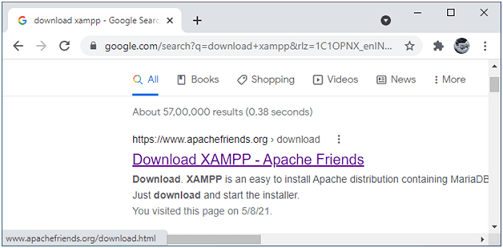
Step 3: Once the web page gets loaded, scroll down and search for XAMPP for the Linux platform. Once you find it click on the download button as shown below: 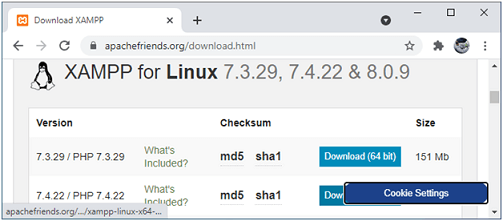
Step 4: When the downloading gets completed, copy it and paste or move it to the desktop for more convenience: Here are the steps to install XAMPP on KALI LinuxStep 1: Now open the terminal and execute the following command: Command Output: 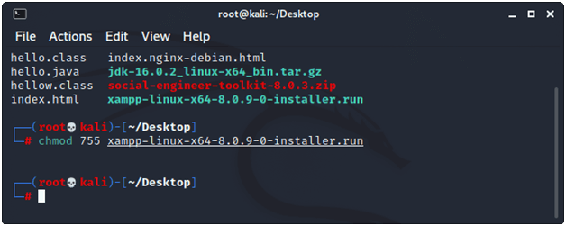
Step 2: Finally, to install the XAMPP execute the following given command: Command Output: 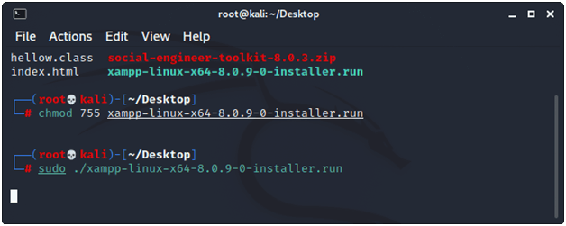
Step 3: As soon execute the above-given command immediately a setup wizard will open as shown below: 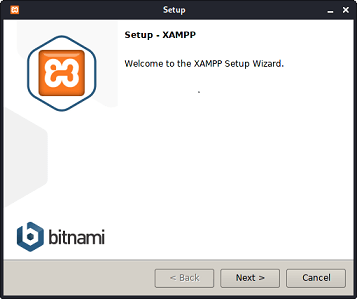
Step 4: Now, all you have to do is click on the "Next" button to begin the setup process. 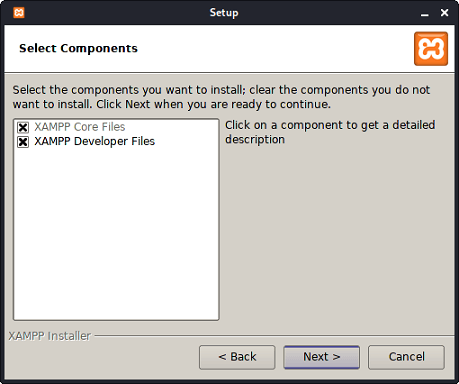
Step 5: Now follow the guided installation, and in the "Select components" step, mark both "XAMPP Core files" and "XAMPP Developer files," then click on the "Next" button. 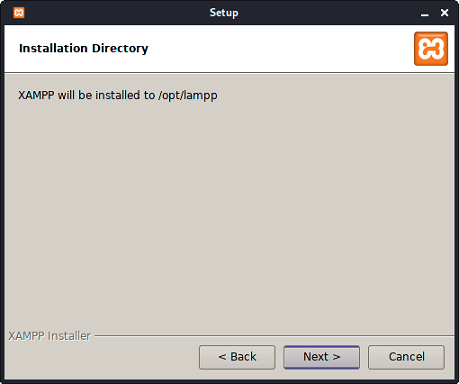
Step 6: Here, all you need to do, press the "next" button three more times until the actual installation process started: 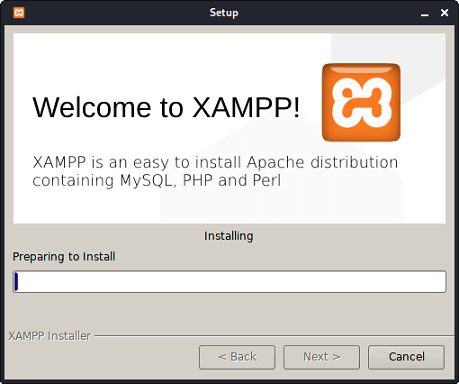
Step 7: Once the installation process gets completed, click again on the "Next" button. 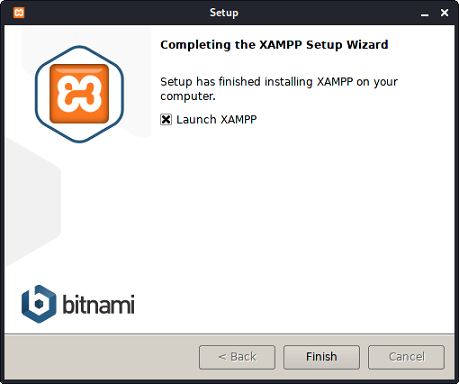
Step 8: Here, you can mark on the "Launch XAMPP" if you want to run( or test) the XAMPP server; otherwise, click on the "Finish" button that all it is. Step 9: Let us know what it will look like when you run it for the first time. 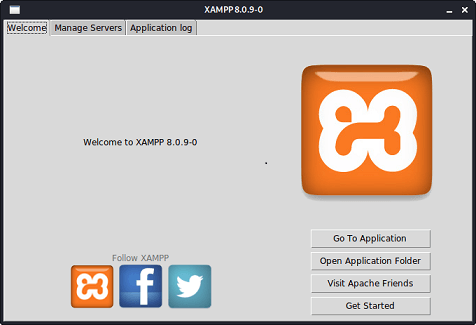
Word of Caution It would be best if you remember that it can't be used for the purpose of production at all. It can be used as well, as it is safe only for development and testing purposes.
Next TopicHow to run a java program on Kail Linux
|
 For Videos Join Our Youtube Channel: Join Now
For Videos Join Our Youtube Channel: Join Now
Feedback
- Send your Feedback to [email protected]
Help Others, Please Share









